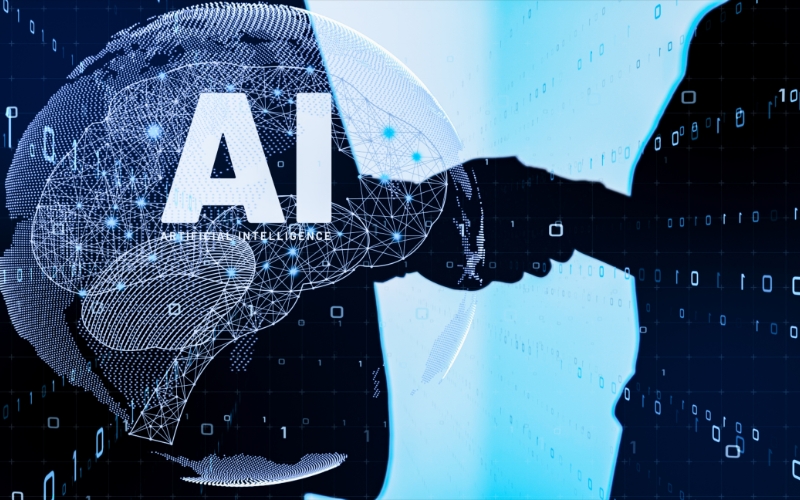- How AI in Executive Search Enhances the Selection of the Right Candidate
- How AI Enhances the Selection of the Right Executive Search Partner
- Key AI Features to Consider in an Executive Search Partner
- Challenges and Ethical Considerations of AI in Executive Search
- The Future of AI in Executive Search Partnerships
- Conclusion
The rapid advancement of AI in Executive Search is revolutionizing the way companies identify top leadership talent. Traditional executive hiring methods often rely on manual assessments and subjective decision-making, which can lead to inefficiencies and biases. However, AI-driven technologies are transforming the process, offering data-backed insights, predictive analytics, and enhanced talent-matching capabilities. Selecting the right Executive Search Partner is now more strategic than ever, as firms leveraging AI can deliver more precise candidate recommendations, reduce hiring timelines, and ensure better leadership alignment. By integrating AI-powered methodologies, businesses can optimize their executive search process, making smarter, faster, and more informed hiring decisions.
How AI in Executive Search Enhances the Selection of the Right Candidate

The integration of AI in Executive Search is transforming how organizations identify and collaborate with the right Executive Search Partner. By leveraging artificial intelligence, companies can streamline the selection process, ensuring that their hiring decisions are data-driven, efficient, and aligned with their leadership needs.
AI-driven tools assess vast amounts of recruitment data, evaluating a search partner’s track record, candidate success rates, and industry specialization. Traditional methods of selecting an Executive Search Partner often rely on reputation, referrals, and manual vetting processes. However, AI simplifies this by analyzing past placements, client feedback, and hiring success metrics to identify firms with proven results.
One of the key benefits of AI in Executive Search is its ability to process structured and unstructured data at scale. Machine learning algorithms can compare the hiring patterns of various search firms, highlighting those with expertise in specific industries, leadership levels, and executive competencies. This ensures that companies choose a partner that aligns with their unique hiring requirements.
Predictive analytics also plays a crucial role in evaluating search partners. AI models can predict the likelihood of a firm delivering top-tier candidates based on their historical performance. By considering factors such as time-to-fill, candidate retention rates, and cultural fit analysis, AI enables businesses to make more informed decisions.
Additionally, AI enhances due diligence by providing real-time insights into the search firm’s methodologies. It can evaluate sourcing strategies, talent mapping accuracy, and diversity and inclusion efforts, ensuring that the selected partner follows best practices in executive recruitment. Companies that leverage AI-driven insights gain a competitive advantage, securing top executive talent through data-backed hiring partnerships.
“AI is transforming executive search. But alongside innovation, understanding a firm’s network remains essential. Learn more in How to Assess an Executive Search Firm’s Candidate Network.”
How AI Enhances the Selection of the Right Executive Search Partner
The adoption of AI in Executive Search is redefining how businesses evaluate and select an Executive Search Partner. AI-powered analytics enable organizations to assess search firms based on performance data, industry specialization, and past hiring success. By leveraging artificial intelligence, companies can make informed decisions, ensuring they collaborate with the most effective recruitment partners.
One of the primary advantages of AI in Executive Search is its ability to analyze vast amounts of historical hiring data. AI tools evaluate a firm’s placement success, candidate retention rates, and hiring speed. Instead of relying solely on reputation or referrals, businesses can use AI-driven insights to identify an Executive Search Partner that aligns with their leadership hiring needs.
AI also plays a crucial role in talent mapping. Advanced algorithms assess executive-level candidates, tracking their career progress and predicting their potential fit for leadership roles. This information helps organizations choose a search firm with proven expertise in sourcing and placing top executives in specific industries.
Additionally, AI-driven predictive analytics enhances decision-making by identifying recruitment firms with a strong track record of delivering high-quality talent. Machine learning models can assess a firm’s efficiency in filling roles, diversity hiring initiatives, and adaptability to evolving workforce trends. This data-driven approach ensures businesses partner with firms that offer strategic hiring solutions rather than a one-size-fits-all recruitment process.
Furthermore, AI enhances transparency in executive search by providing objective assessments of search firm methodologies. Companies can evaluate a search firm’s use of data-backed hiring techniques, ensuring that their recruitment partner employs innovative and efficient strategies to identify the best executive talent. By integrating AI into the selection process, organizations can confidently choose a partner that aligns with their long-term talent acquisition goals.
Key AI Features to Consider in an Executive Search Partner

The rise of AI in Executive Search has introduced a range of advanced features that enhance the efficiency and effectiveness of leadership hiring. When selecting an Executive Search Partner, companies must evaluate their use of AI-powered tools that improve decision-making, talent sourcing, and hiring accuracy.
One of the most critical AI-driven features is predictive analytics. AI can analyze historical hiring patterns, candidate success rates, and market trends to forecast which candidates are most likely to thrive in executive roles. This enables an Executive Search Partner to make data-driven recommendations rather than relying on intuition or manual screening.
Another key AI capability is automated talent sourcing and shortlisting. AI algorithms scan vast talent pools, identifying executive candidates based on their qualifications, experience, and leadership potential. Unlike traditional search methods, AI-powered tools can instantly match candidates to job requirements, reducing hiring time and increasing placement success. The use of AI in Executive Search ensures that companies gain access to the most relevant executive talent without prolonged manual filtering.
AI also plays a crucial role in bias reduction. Machine learning algorithms evaluate candidates based on objective criteria, eliminating unconscious biases that may exist in traditional hiring processes. This helps an Executive Search Partner create a more diverse and inclusive talent pipeline, leading to fairer hiring decisions and stronger leadership teams.
Additionally, AI-driven sentiment analysis allows firms to assess a candidate’s cultural fit by analyzing communication patterns, leadership traits, and behavioral data. This ensures that search firms place executives who align not only with job specifications but also with company values and vision. By leveraging these AI features, businesses can optimize their executive hiring process and secure top leadership talent with greater precision.
Challenges and Ethical Considerations of AI in Executive Search
The increasing use of AI in Executive Search has revolutionized how companies identify and recruit top leadership talent. However, as AI-driven recruitment gains traction, it presents several challenges and ethical concerns that must be addressed to ensure fair and effective hiring. One of the most pressing issues is algorithmic bias, where AI systems, despite their data-driven approach, may unintentionally reinforce existing prejudices. If an Executive Search Partner relies solely on AI-driven assessments without human oversight, it may exclude highly qualified candidates due to biased training data.
Another challenge is the balance between AI efficiency and human expertise. While AI enhances recruitment by automating resume screening, skill matching, and predictive analytics, it cannot replace the nuanced judgment of human recruiters. Companies must ensure that their Executive Search Partner uses AI as a tool rather than a replacement for human decision-making. AI-driven hiring decisions should always be supplemented with recruiter insights to maintain fairness and accuracy.
Transparency in AI-powered executive search is another critical concern. Many AI systems operate as “black boxes,” making it difficult for companies to understand how hiring decisions are made. Without clear visibility into AI algorithms, organizations risk making hiring choices based on unclear or flawed reasoning. Employers must demand that AI in Executive Search is applied ethically, with full disclosure of how data is analyzed and candidates are shortlisted.
Data privacy is also a significant issue. AI relies on vast datasets, including candidate backgrounds, behavioral insights, and social profiles. If not handled responsibly, this data can be misused, leading to privacy violations. Companies partnering with AI-driven search firms should ensure strict compliance with data protection laws, safeguarding both employer and candidate information from unethical use.
“If you’re looking for the best firms in the industry, check out Best Executive Search Firms in 2025: What Companies Are Saying.”
The Future of AI in Executive Search Partnerships

The role of AI in Executive Search continues to evolve, reshaping how organizations identify and secure top leadership talent. As artificial intelligence advances, its integration into executive recruitment is expected to become more sophisticated, offering companies unparalleled accuracy in selecting the right leaders. AI-driven hiring solutions will enhance decision-making by leveraging predictive analytics, machine learning, and big data to refine candidate selection and optimize leadership placements.
One of the most significant trends in AI in Executive Search is the increasing reliance on predictive hiring models. These models analyze extensive datasets, including candidate career trajectories, performance histories, and industry trends, to predict which executives are most likely to succeed in specific roles. This allows companies to work with an Executive Search Partner that utilizes AI to proactively identify high-potential candidates before they even enter the job market.
Another future development is the use of AI-powered natural language processing (NLP) to assess executive communication styles, leadership qualities, and cultural fit. AI-driven sentiment analysis can evaluate interview responses, written communication, and behavioral data to determine how well a candidate aligns with a company’s strategic vision. This ensures that an Executive Search Partner can provide deeper insights into a candidate’s leadership potential beyond just resumes and references.
As AI technology advances, executive search firms will increasingly implement real-time market intelligence to refine their search strategies. AI will continuously monitor industry shifts, competitor hiring patterns, and emerging leadership trends, allowing businesses to stay ahead in acquiring top talent. Additionally, AI-driven automation will streamline the executive hiring process, reducing time-to-fill and improving overall recruitment efficiency. Companies that embrace AI-backed search firms will gain a competitive advantage, ensuring they attract and retain the best executive talent in an increasingly data-driven business landscape.
Conclusion
As AI continues to reshape the executive search landscape, companies that embrace its capabilities will gain a competitive edge in securing top leadership talent. The use of AI in Executive Search allows businesses to refine their selection criteria, enhance candidate evaluations, and improve hiring accuracy. Choosing an Executive Search Partner that effectively utilizes AI-driven tools ensures access to high-performing executives while mitigating hiring risks. With predictive analytics, machine learning, and AI-powered assessments becoming integral to recruitment strategies, organizations must adapt to this evolving landscape to stay ahead. The future of executive hiring is data-driven, and AI is the key to making more strategic, objective, and successful leadership placements.
AI is revolutionizing the way firms operate, but choosing the right partner still requires careful evaluation. Find out how to choose the best executive search firm for your industry in 2025 to stay ahead in the evolving recruitment landscape.


